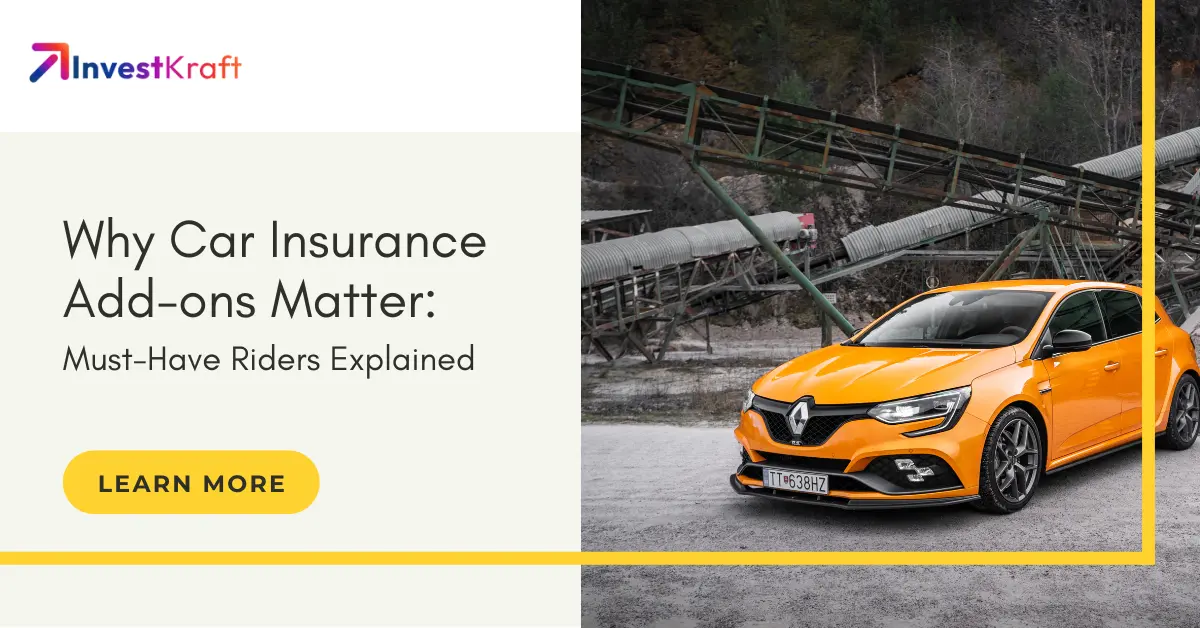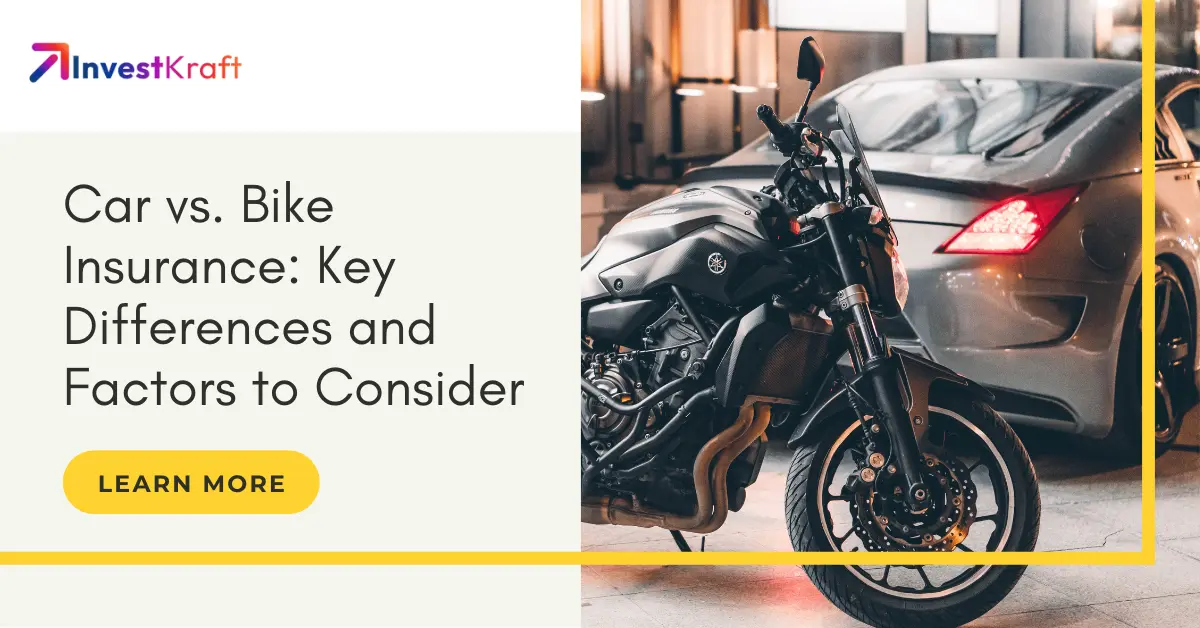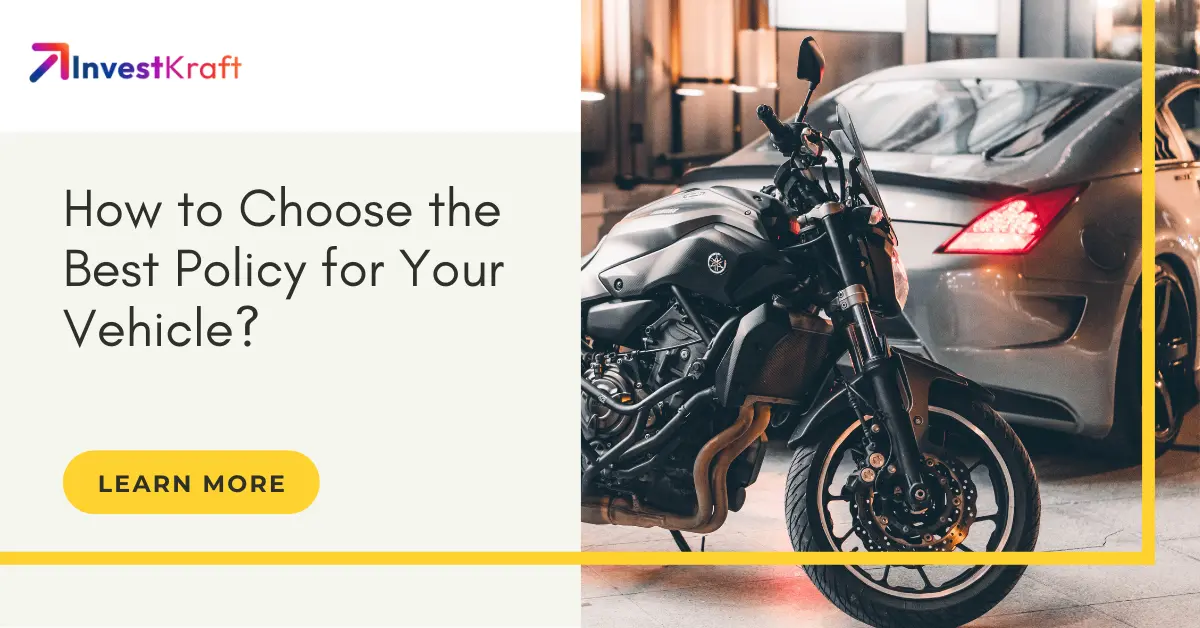Understanding the Importance of Insuring Your Vehicle: Car and Bike Insurance
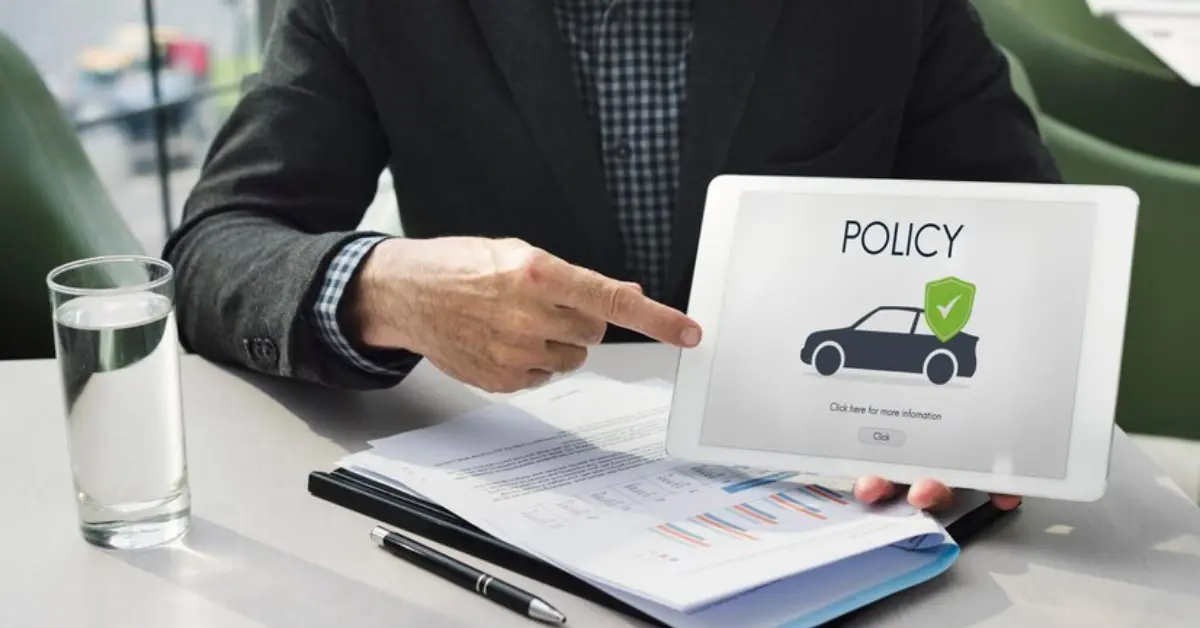
Insurance today is essential not only for vehicles but also for living and nonliving things in the world. Insurance is known to cover risks of various types and is classified into different types based on their usage and the kind of risks they cover. The most common classifications include life insurance, motor insurance, health insurance and general insurance.
Do you know as per the General Insurance Council, a staggering 60% of vehicles on Indian roads are uninsured? Interestingly, most of these uninsured vehicles are two-wheelers, such as scooters and motorcycles. This is especially concerning as statistics show that two-wheelers are more prone to road accidents compared to four-wheelers.
In this blog content, we are going to discuss car and bike insurance primarily to have a better understanding of their importance. Let us begin with key essentials i.e. what all it covers. Keep in mind that each cover comes at a cost and is priced separately by the insurance company. Make sure you gather the necessary information about your car insurance to avoid any kind of inconvenience.
Understanding Different Types of Motor Insurance Coverage
When it comes to protecting yourself and your car or bike, understanding the different types of motor insurance coverage can be a game-changer for you. Let’s break down these important coverages in simple terms so you know exactly what you’re paying for and how they protect you.
1. Property Damage Liability
If you or someone driving your car (with your permission) accidentally damages someone else’s property, this coverage steps in. This doesn’t just mean damage to other cars—it also covers things like:
- Fences
- Lamp posts
- Telephone poles
- Buildings
It’s a way to pay for the damage you might cause without having to cover it out of pocket.
2. Collision Coverage
Collision insurance takes care of the damage to your own car when it’s involved in an accident, regardless of who’s at fault. Here’s what it covers:
- Crashes with another vehicle.
- Collisions with objects like trees or poles.
- Damage from flipping over.
- Pothole-related damage.
Collision coverage comes with a deductible, which is the amount you pay out of pocket before your insurance kicks in. If you’re not at fault, your insurance might recover the costs from the other driver’s insurer and even refund your deductible.
3. Medical Payments or Personal Injury Protection (PIP)
PIP, also known as personal injury protection, covers medical expenses for you and your passengers if you're injured in an accident. Beyond just medical bills, it can also help with:
- Lost wages if you’re unable to work.
- Replacement services, like household chores you can’t do due to your injuries.
- Funeral expenses if the worst happens.
This type of coverage is there to take care of you and your loved ones during tough times after an accident.
4. Comprehensive Coverage
Comprehensive coverage protects your car from damage caused by anything other than a collision. This includes:
- Theft
- Fire
- Floods and hail
- Vandalism and riots
- Falling objects
- Animal collisions (e.g., deer or birds)
It even covers cracked or shattered windshields, sometimes without a deductible. If something unexpected happens to your car, this coverage has your back.
5. Uninsured and Underinsured Motorist Coverage
If you’re hit by a driver who doesn’t have insurance or doesn’t have enough to cover your losses, this coverage steps in. It also covers:
- Hit-and-run accidents.
- Situations where you’re a pedestrian struck by an uninsured or underinsured driver.
- This ensures you’re protected even when the other driver isn’t.
Further Reading: Motor Insurance – Types of Coverage, Premium Calculation, & Consequences of Driving Uninsured
Two-Wheeler Insurance - Key Importance
Let us put it simply for you. For instance, Ramesh owns a two-wheeler Bajaj Platina 100 CC and has third-party liability insurance only. One fine day, while driving on a road, he meets with an accident. He unintentionally hits the Scooty owned by Sarita. It results in damage to both vehicles.
Now, in this case, the insurance will cover the cost of repair under the third-party liability benefit. But, Ramesh will have to bear the cost of repairing his two-wheeler. Do you know why? It is just because he did not go for comprehensive insurance that is known to cover both the expenses in such incidents. Hence, it is highly recommended to have comprehensive two-wheeler insurance available online and through agents selling different types of insurance.
In general, comprehensive two-wheeler insurance protects against both natural calamities and human acts. Under natural calamities, the service providers cover loss or damage due to earthquakes, floods, storms, cyclones, etc. On the other hand, it covers losses occurring because of riots, theft or burglary, or terrorist activity. It also protects you against other damages happening due to accidents.
It is in the interest of a two-wheeler owner to have at least the basic know-how of the insurance inclusions and exclusions for a peaceful driving experience.
Inclusions in the Two-wheeler Insurance
- Loss or damage to your bike due to an accident:
If your bike gets damaged due to an unfortunate accident, your insurance policy covers the repair or replacement costs. Whether it's a minor scratch or severe damage, the insurance helps minimise your financial burden by reimbursing repair costs. This ensures that you can restore your bike without worrying about sudden, hefty expenses.
- Injuries to the bike owner under personal accident cover:
In the event of an accident, it’s not just the bike that’s at risk—your safety is equally important. Personal accident cover provides financial support if you, as the owner, sustain injuries in a bike-related mishap. This could include covering hospitalisation costs, medical treatment, or compensation in case of disability, ensuring that you are not financially strained during recovery.
- You will get compensation from the insurance company after completing the necessary process if your bike gets damaged due to natural calamities.
Natural calamities like floods, earthquakes, or cyclones can wreak havoc on your bike. With insurance, you get compensation for such unforeseen damages. After completing the necessary claim process, the insurer reimburses you for the costs of repairing or replacing your bike. This coverage acts as a safety net in situations beyond your control.
- You get financial compensation also if your bike gets damaged due to man-made calamities like riots, strikes, theft, and other activities.
Human actions, such as riots, strikes, or acts of vandalism, can also lead to significant bike damage. In such cases, your insurance policy steps in to provide financial compensation, ensuring that you don’t bear the brunt of these events alone. Even if your bike gets stolen, your policy covers you, giving you peace of mind.
- You get the bike’s Insured Declared Value (IDV) in the condition of theft, as compensation towards that situation.
In unfortunate cases where your bike is stolen and cannot be recovered, the insurance company compensates you by paying the Insured Declared Value (IDV). This amount represents the current market value of your bike, allowing you to recover financially from the loss and consider purchasing a replacement.
Exclusions - Situations Not Covered Under Bike Insurance
- The damages caused to your bike due to drinking and driving.
If you cause an accident while riding under the influence of alcohol or drugs, your insurance claim will be denied. This is because driving intoxicated is considered reckless behaviour, which voids the policy’s coverage.
- Maintenance or mechanical expenses are needed due to the usage of your two-wheeler.
Expenses for regular servicing, maintenance, or fixing mechanical problems due to regular wear and tear are not covered. These are part of the normal upkeep of owning a bike and must be handled by the owner.
- Losses occurred to your bike while using it for illegal activities.
If your bike sustains damage or is lost while being used for illegal purposes - such as smuggling or other unlawful activities - the insurance company will not provide compensation. The policy strictly excludes coverage for such scenarios.
- Damages occur due to war or a nuclear strike.
Insurance does not cover damages caused by war, nuclear strikes, or similar large-scale catastrophic events. These are considered exceptional circumstances that fall outside the scope of regular two-wheeler insurance policies.
Key Features of a Two-wheeler Insurance
- A Two-wheeler Insurance term generally is of 1 year. There are some companies offering discounts on paying renewal for 2 years.
- You are free to go for a comprehensive insurance policy or only a third-party liability insurance policy.
- Personal Accident (PA) Coverage in two-wheeler insurance can be extended up to INR 15 lakhs in case of death or disability caused to the insured.
Car Insurance - Importance
Now, let us discuss car insurance and learn about its importance for a car owner and his/her family.
Accidents and incidents can occur anytime and at any place while driving on a road. It can occur also when your vehicle is parked. These unwanted and unexpected accidents can sometimes result in a big financial loss that can make your family helpless.
Why is it necessary to have car insurance in India?
In countries like India, there is a constant rise in population and traffic resulting in frequent accidents. Hence, the government of India has made third-party car insurance mandatory for all users. A car owner is free to buy comprehensive car insurance that provides an extra shield against damages and losses occurring because of natural and man-made calamities.
Car Insurance – Key Benefits
- Financial Security Against Accidents - Car insurance offers a safety net for unexpected accidents by covering repair costs, property damage, and even medical expenses. This ensures you’re not left with a heavy financial burden in case of a mishap.
- Protection Against Third-Party Liabilities - If your car causes damage to another person’s vehicle, or property, or leads to injuries, third-party liability coverage protects you from legal and financial repercussions.
- Coverage Against Theft or Total Loss - In case your car is stolen or suffers irreparable damage (total loss), insurance provides compensation, helping you recover the financial value of your vehicle.
- Peace of Mind in Natural Calamities - Events like floods, earthquakes, or storms can damage your car. Comprehensive insurance ensures you’re covered against such unpredictable natural disasters.
- Access to Add-On Benefits - Many policies come with optional add-ons like zero depreciation, roadside assistance, and engine protection, giving you enhanced protection tailored to your needs.
Final Thought
We hope the above-shared information may prove useful and help you make informed decisions when it comes to car and bike insurance.
Remember, life is uncertain so it is an accident. If you love your family, think about their condition in your absence. A major car or bike accident can ruin your family and bring them on the road. But your one good decision of having comprehensive car insurance or comprehensive bike insurance can help you save your hard-earned savings meant for your loved ones.
Today, there are many options available for you to help you with your car insurance renewal. You can also go for your vehicle insurance renewal online and get a better deal on payable premiums.
Frequently Asked Questions (FAQs)
Q1. What’s the difference between collision and comprehensive coverage?
- Collision covers damage caused by accidents (like hitting another car or object), while comprehensive covers non-accident-related incidents (like theft, natural disasters, or hitting an animal).
Q2. Do I need PIP if I have health insurance?
- Yes, PIP can cover more than just medical bills, like lost wages and replacement services, which your health insurance might not pay for.
Q3. Is property damage liability mandatory?
- In most states, yes! It’s a basic requirement to ensure you can pay for damage caused to someone else’s property.
Q4. What’s a deductible, and how does it work?
- A deductible is the amount you pay out of pocket before your insurance coverage kicks in. For example, if repairs cost ₹20,000 and your deductible is 5000, your insurance pays 15,000.
Q5. Do I need uninsured motorist coverage if I live in a state with mandatory insurance laws?
- Absolutely! Not everyone follows the law, and uninsured motorist coverage protects you if you’re hit by someone without sufficient insurance.
Q6. Is car insurance mandatory?
- Yes, third-party car insurance is legally required in most countries. Comprehensive coverage is optional but highly recommended.
Q7. What does comprehensive car insurance cover?
- It covers damages to your car, third-party liabilities, theft, and natural or man-made disasters.
Q8. Can I transfer my car insurance if I sell my car?
- Yes, insurance can be transferred to the new owner after completing the necessary paperwork with the insurer.
Q9. What is the No Claim Bonus (NCB) in two-wheeler insurance?
- NCB is a discount offered on your premium if no claims are made during the policy period.
Q10. How can I reduce my car insurance premium?
- Opt for higher deductibles, maintain a good driving record, and avoid unnecessary claims to lower your premium.
Author: Rajesh Mishra
Rajesh Mishra is a professional and multilingual writer with over 12+ years of versatile experience in content writing.
He has crafted compelling narratives across a diverse array of industries, including BFSI, fintech, IT, pharmaceuticals, e-commerce, education, fashion, and more. He is a commerce graduate from Mumbai University. His strong academic foundation and passion for storytelling enable him to engage audiences and deliver impactful content.
He is adept at transforming complex concepts into clear, relatable language, making his work accessible to both, industry professionals and everyday readers. He thrives in dynamic environments, leveraging his extensive knowledge to create articles, blogs, whitepapers, and marketing materials that resonate with target audiences. Driven by a commitment to excellence and a keen eye for detail, Rajesh Mishra continuously explores emerging trends and technologies, ensuring his content remains relevant and thought-provoking.







